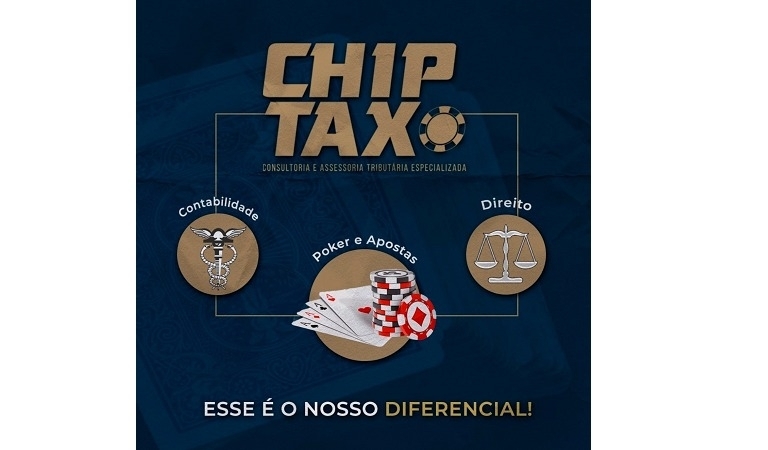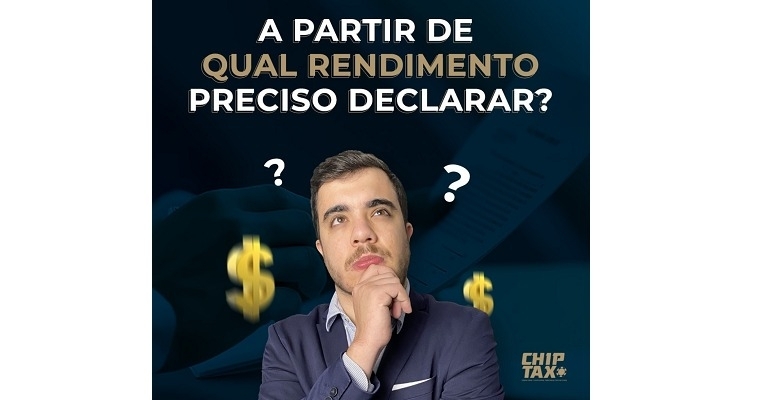

GMB - How did the idea of Chip Tax come about?
Matheus Mesquita - The idea of creating Chip Tax came from my partner's and my coexistence cycle. Poker and sports betting have always been a great hobby for us and we have always lived with many friends that were poker athletes and professional sports bettors. In this coexistence, we realized that most of them were not even aware that they needed to pay income tax, or when they did, they did it wrongly, without the necessary legal and technical support. Realizing that what motivated this lack of tax collection was the lack of knowledge of professionals in the area about the activities, since the existence of these professions is not even known by many, we decided to combine the years of experience within the taxation market with our practical knowledge of the gaming market, providing a tax consultancy and advisory service that truly understands the profession of the poker athlete and professional sports bettor.
What services do you offer?
Chip Tax provides specialized tax consultancy and advisory services to sports bettors and professional poker players. We elaborate tax solutions, under the terms of the current legal system, which in fact fit into the professional reality of these two publics. Thus, we work with people who make poker and sports betting their profession, creating a system of tax collection and tax regularization. In general, we take professionals from absolute informality to a scenario of tax regularization and security.
You have a degree in law and accounting. How did you get into gaming?
I am an active lawyer and I have an accounting course still in progress. My entry into the gaming world starts from the personal sphere to the professional sphere. Poker and sports betting have always been part of my coexistence cycle, with these activities being a hobby practiced in my spare time. Until the emergence of the idea of creating Chip Tax, I had never imagined myself working with this market. My entry into this field was due to a perception of lack of professionals who served an indispensable audience for the consumption relationship of gaming and that is not supported by the Brazilian market, which is the gambler. Therefore, from my practical experience with this audience, I seek to improve myself and technically specialize to provide the necessary support to players to create a healthy and sustainable relationship between them, gaming operators and the State.

Today, you are a guest member of the OAB/DF Gaming Law Commission. What have been your participations within the commission?
The OAB/DF Gaming Law Commission is brilliantly led by lawyers Sérgio Garcia and Bárbara Teles, providing an exceptional space for dialogue between some of the professionals working in the gaming market in Brazil and in international markets. The exchange of experiences between professionals is extremely valuable in fostering technical and theoretical discussions on the subject of gaming in Brazil, which, as we know, is still, in a way, incipient compared to several other large international markets. As an invited member of the commission, I seek to contribute with the perspective of my professional experience working with players, which is an indispensable part of developing the gaming market in Brazil.
The OAB/DF has already held three editions of “The Rules of Gaming” seminar. Do you already know what the next topic of this series will be? How important is it for operators who want to work in Brazil?
The seminar “The Rules of Gaming” takes place monthly, covering several themes and perspectives related to the matter of gaming in Brazil. The next issue to be addressed in the series has not yet been defined, but the Committee always values current and relevant topics for the development of discussions on gaming in Brazil, always observing the plurality of perspectives and opinions on the various themes. For operators, these events are extremely relevant, since the interest in entering the Brazilian market is notorious and unquestionable. So for this insertion to occur more efficiently, it is necessary to be aware of what is discussed by those who are already inserted and know the functioning of the national market.
As a lawyer, what changes do you believe the regulation of betting must have to be successfully implemented in Brazil?
The first and most elementary change that sports betting regulations must contain is the practical distinction between sports betting and lottery activity. This comparison, originally carried out, limits, in a way, the possibility of exploring the Brazilian market by operators at the federal level. Likewise, it is important to implement a wide concession system for operators wishing to explore the Brazilian market, which implies an unrestricted, but regulated, offer of licenses for operators. This opening to free market initiative guarantees a high availability of operators in the national territory, which, from the federation's perspective, increases revenue and, from the perspective of the population, of the players, guarantees an increase in the quality of service.

Which international regulation do you believe is the most effective and which SECAP should keep an eye on when making the Brazilian betting regulation official?
An international regulation that I welcome, which satisfactorily encompasses, in my opinion, the two audiences that I have the closest proximity, which are poker players and sports bettors, is Great Britain. There is great respect for the player on the part of the country's regulation, which parameterizes the essential conditions of the licenses offered to operators through an active regulatory agency, the Gambling Commission. In addition, there is a free license offer for operators to explore sports betting, horse racing betting, poker, casino and bingo, making an essential distinction between these activities and lottery, which in the country is limited to the monopoly provider, Camelot.
How do you see the future of the gaming market in Brazil in the next five years? Do you believe they will legalize all gaming verticals?
As it could not be different, my perspective for the future of the gaming market in Brazil is extremely positive. Fortunately, we have seen a massive increase in the dissemination of the Brazilian gaming market since 2018 and with this the population's call for full legalization becomes ever greater, which leads me to believe that all types of verticals will be legalized. With this, I believe that all parties involved in the relationship stand to gain. The Government is increasing revenue, operators can explore the thriving Brazilian market and the population in general with the vast availability of jobs and income that this market provides.
Source: Exclusive GMB